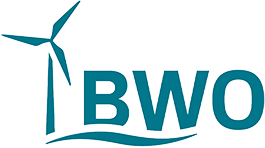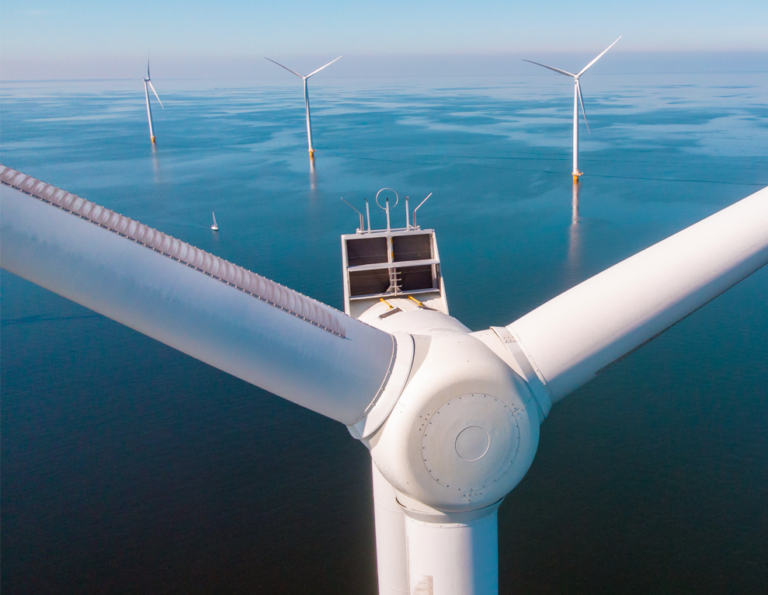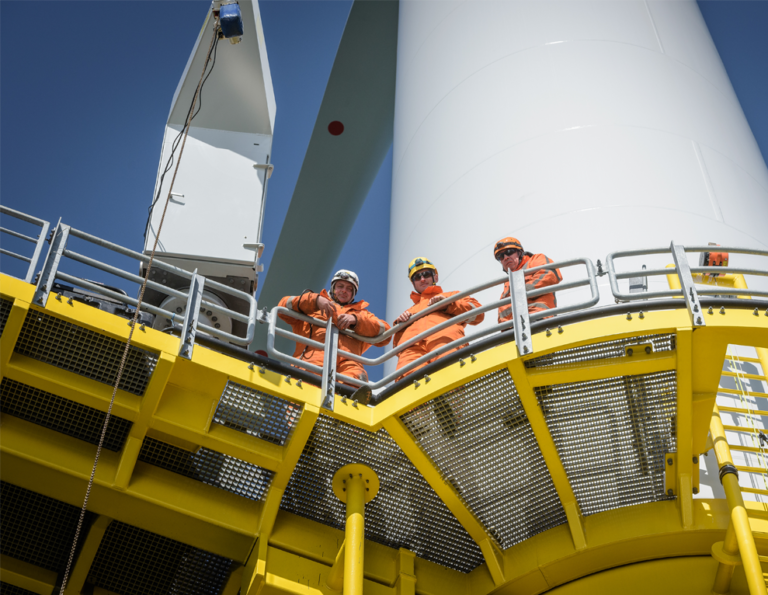Fraunhofer study: Sufficient space available for 70 GW of offshore wind energy
"70 gigawatts of offshore wind energy are possible in a way that is compatible with nature," said managing director Stefan Thimm at the opening of yesterday's BWO autumn festival in the Alice Rooftop Garden in Berlin. This is now scientifically proven.
The one commissioned jointly by BWO and BDEW Offshore area potential study of the Fraunhofer Institute for Wind Energy Systems (IWES) shows a broad understanding across all stakeholder groups that the expansion of offshore wind energy is necessary for the success of the energy transition. In his presentation, Bernhard Stoevesandt from Fraunhofer IWES emphasized the general willingness of all interest groups to find common solutions for the future use of sea space. Above all, the necessary political will is decisive.
Afterwards, the parliamentary state secretary Stefan Wenzel from the Federal Ministry for Economic Affairs and Climate Protection as well as the members of the Bundestag Mark Helfrich (CDU), Bengt Bergt (SPD) and Olaf in der Beek (FDP) discussed with more than 100 guests how a common use of areas on the sea with other interest groups - for example the military, fisheries or even nature conservation. The fact that the expansion of offshore wind energy was classified as "in the overriding public interest" was an important and correct step. Now a decision must be made as to what consequences this regulation will have for maritime spatial planning in the future. There was also encouragement from the audience from the Federal Ministry for the Environment: The importance of renewable energies is undisputed, and nature conservation is also willing to make compromises. A prerequisite for this is, in particular, suitable protection and compensation measures in order not to endanger local species.
In addition to area potential, topics such as the recently amended Wind Energy at Sea Act (WindSeeG) were also discussed. The latter is currently being revised again as part of the Energy Security Act (EnSiG). The podium participants confirmed that priority should be given to editorial changes. In addition, other measures, such as an adjustment of the so-called 2k criterion for the short-term creation of an additional 2 GW of offshore capacity, are also under discussion.
Several industry representatives made it clear that there was an urgent need for clarification, especially with regard to the qualitative tendering criteria for areas that were not centrally pre-examined. Politicians urgently need to take action here in order to create sufficient transparency and legal certainty in time for the next round of tenders.



